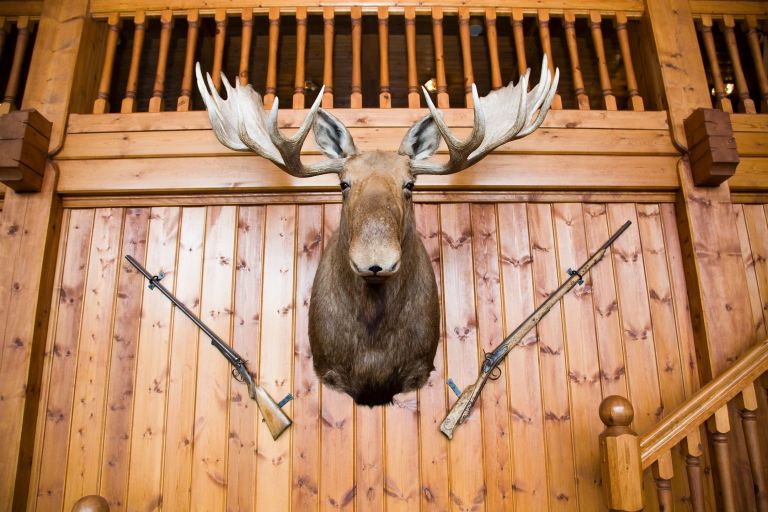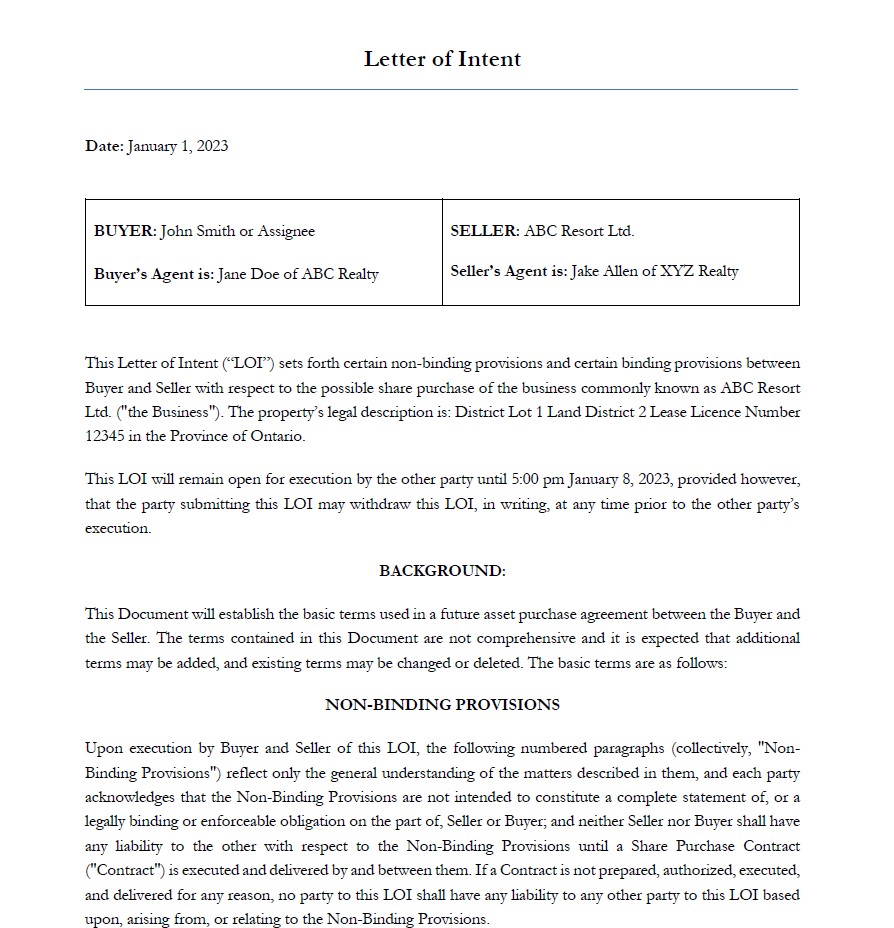How to Transfer Your Fishing & Hunting Lodge, Marina or Resort Business to a Family Member
Is family succession the right option for your fishing & hunting lodge, camp or resort?
This is an important question to begin with. There may come a point when you, the owner, will want to turn over your business to one of your family members. This could be due to a variety of reasons but the most common is that you’d like to retire and wish to entrust your business to a family member who you believe will run it well.
It may be your dream to keep the business in the family, after all, you dedicated your career to this thing, you built it up, you put in those long hours and you nurtured those close relationships with your guests and they must be taken care of right? So does this mean you get to dictate how your son, daughter or other family member spends their career? It’s important to balance your emotions with hard reality.
Long before you intend to leave your business, it would be wise to ask yourself the below questions:
- Is there a family member who really wants to take over the business – or would they be doing it out of obligation? Does this family member possess the right skills and attributes to be successful?
- Will nominating your successor set up conflict in your business?
- Is there a better option than transitioning to a family member?
- What is your business worth and will family succession provide sufficiently for your future?
- What is the best way to structure the ownership transition?
- Will you have any future involvement in the business after the transition begins
Successful communication with all family members is crucial to making any decisions. Remember, there are other ways of being financially fair to your family members without involving them in the ownership of your business.
Establishing who is best to take over your business
It can help to get a third party opinion from someone that is familiar with both the business as well as the potential successors and can give an unbiased opinion on who is the best person for the role.
Nominating a single successor from among your family is often the simplest method for succession. However, this isn’t always practical or realistic and you may wish to nominate more than one successor. If this is the case, you need to ensure the co-successors have a similar vision for the business’ future and a similar commitment to it.
To limit the potential for conflict if you do utilize multiple successors it can help if you:
- determine separate areas of responsibility for each successor
- put in place formal dispute-resolution procedures
Your successor(s) should have a strategic plan and a vision for the business. The vision may be different than your own, but keep in mind that the skills that were required to set up your business may not be the same as those needed to develop it further. What the next generation is envisioning could just be the recipe to take your outdoor tourism business to the next level.
Clarifying your needs from the business exit
What Are Your Retirement Income Needs?
What's Your Fishing & Hunting Lodge, Camp or Resort's Real Value?
When it comes to fishing & hunting lodges, camps & resorts, often the owner is the business.
Ask yourself this – If you were to leave your business in the hands of your employees for three months, would it be worth as much when you came back?
If the answer is no, your successor is likely to face significant obstacles keeping the business going, and the price an outsider may be willing to pay may be much lower as a result. The key to solving this problem is to put processes in place for every aspect of operating your business. These can be in the form of checklists, managers, anything that creates accountability and eliminates guess work.
If your business is viable without you there to run it, you still need to know what its value is.
A professional fishing & hunting lodge, camp or resort business appraiser can help you look past your emotional attachment to the company and arrive at a realistic number.
Options for transferring your business
There are two main ways in which a business can be transferred to a family member, as a gift or through a sale:
Giving a gift
If you hand over the assets or shares of your business for nothing, it’s considered a gift.
While the business owner may not have to pay tax on the gift amount, the cost base of the business will transfer to the beneficiary.
Say your lodge, camp or resort business has a market value of $1 million, but it was originally purchased for $100,000. If the parent sells the business to their child, then the new adjusted cost base will be $1 million. If it’s a gift, the cost base stays at the original purchase, which means the child will owe tax starting at $500,000 when they sell.
Through a Sale
Like the sale of any business the devil is in the details. What looks like a straightforward sale to a family member can create unforeseen taxes and can spin the family into acrimony and discord. And that’s why a sale should be well-planned and done with the help of professional advisers knowledgeable of these transactions.
Much has been written about traditional business sales, seller determines market value, buyer and seller agree on price, closing process begins. When the buyer is a family member a few more possibilities open up and I’d like to open your mind to a few of them.
3 ways you can receive monthly income from the sale of your business to a family member
- In some cases you or the family member may prefer to monthly payments instead of paying the whole sale price upfront. In this situation you could setup a private annuity agreement. This is a special sale where you transfer ownership of the business to the buyer and they agree to make payments periodically for the rest of your life. Those who want to retire may find private annuities beneficial if they cannot get full cash from their family member for the business. However, private annuities have no security behind them so you have to truly trust the family member that you are arranging this with.
- You could receive a mixture of a lump and salary. This would involve you staying partially connected to the business and earn a monthly income from it until the new owner gets used to how the business is run.
- Owners who don’t want to have a role in the business after it is sold can maintain ownership of the physical assets and lease them out to the new owner. If you happen to own your lodge, camp or resort outright as well as the equipment necessary for its operation, you could collect money from the lease every month and not have to lift a finger in operating the business.
Its important that you figure out how much you want to continue to be involved in the business and which option will give you the income that you need to enjoy the retirement lifestyle that you want to have.
How To Structure The Transfer of Ownership
As a general proposition, money flows, papers are signed and taxes are paid when a business is transferred. How you structure the transfer impacts all of these activities.
Sell shares, not assets
It’s always better to sell shares instead of assets. Your family member may want to purchase assets because of the tax benefits it gives them, but selling assets makes you ineligible for the capital gains exemption.
If your family member is only willing to buy assets and you don’t have any other options, consider asking for more money. Taking the favourable tax implications into account, the buyer is likely to be onboard with this.
Set up a family trust
If your business is incorporated you can freeze the value of the shares in the company which locks them in at a fixed dollar figure.
The trust then buys new shares at a nominal (i.e., low dollar-value) amount. Anyone who is part of the trust becomes a beneficiary, meaning that if company shares are later sold to someone outside of the trust, the value of that sale is spread across all family members.
Because the money from the sale of shares is distributed across multiple family members, each person’s capital gain is only part of the total amount.
Managing the family succession process
The overarching message we are hoping to convey to you with this article is that the key to a successful family succession is effective planning.
One of the hardest things to do in business is to step down. It can be particularly hard if your business is a family one you have been running for years like so many fishing & hunting lodges, camps and resorts are.
You can make things easier for yourself if you:
- clearly determine any future role you may have in the business
- accept that you’re no longer in charge – though your advice and support will be invaluable, your successor may have ideas very different from your own
- plan other activities to continue to lead a fulfilling life after you leave the business
Finally, keep in mind that it’s very important your family successor is allowed to assume their role freely. If they can’t, they’re likely to become frustrated and the business WILL suffer. It can help if you remember that change is often necessary for a business to develop successfully.
This article has been prepared by Frontier Hospitality Advisor for general information only. Frontier Hospitality Advisor makes no guarantees, representations or warranties of any kind, expressed or implied, regarding the information including, but not limited to, warranties of content, accuracy and reliability. Any interested party should undertake their own inquiries as to the accuracy of the information. Frontier Hospitality Advisor excludes unequivocally all inferred or implied terms, conditions and warranties arising out of this article and excludes all liability for loss and damages arising there from.


